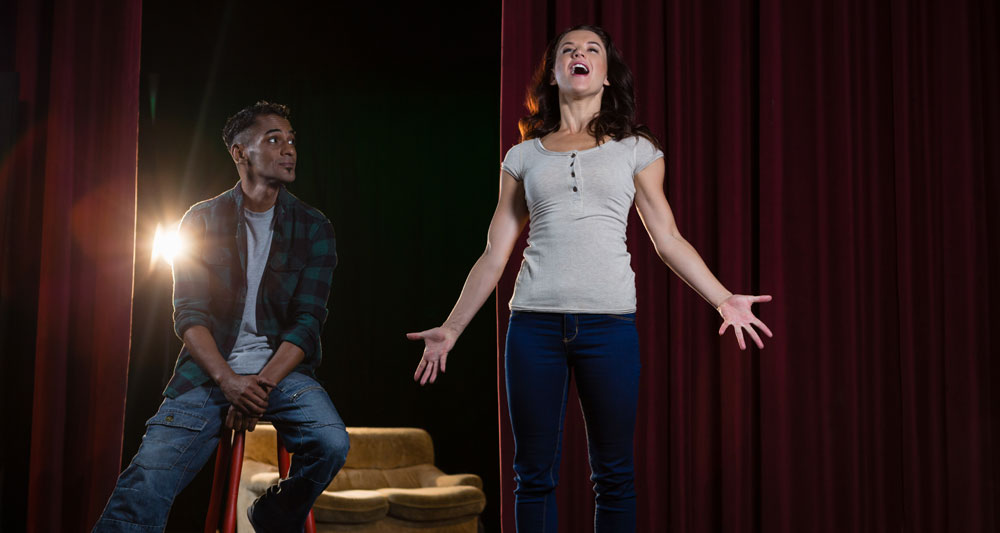Giving Up Control

February 11, 2021 | By Stacey Mason
The craft of improvisation is built on a few core foundational principles.
First and the most widely known is the law of agreement, typically referred to as “yes, and”. That basically means being positive and affirming with your scene partners (saying “yes”) and then adding something new in order to keep the scene moving (that’s the “and” part).
Second is listening. And not just listening to what’s being verbalized, but deep listening which encompasses body language and emotions.
Third is focusing on making your partner look like a genius. Improv is a team sport, so it’s important to remember that every choice made on stage is for the betterment of the scene, which is done by making others shine. It is generosity.
Lastly is giving up of control, which is by far the hardest principle to master. It’s about leaning in to the unknown and trusting in an outcome you can’t see or predict.
I think humans by nature are wired to take charge, have an agenda, lead, conquer and win. We’ve been taught this from an early age in order to pursue and fuel our ambitions. Drive is certainly an admirable quality.
I just might suggest that if a hyper-drive mentality means never relinquishing control, then we’re missing an opportunity to develop a few other skills that will serve us equally well. Skills like trust and vulnerability, learning to embrace the unknown and conquering fears.
There’s a mantra that improvisors often repeat to themselves as they take the stage: Play the scene you’re in not the scene you want to be in. It’s a subtle reminder to lean in … to trust in the process … to surrender by giving up control.
It means you have to let go.
Letting go is hard. It’s hard for a lot of reasons that all converge around fear. Fear, one of the most primal human emotions, has both a physiological and an emotional response. It’s also complex, differing from person to person. It distracts and it divides. It seeks self-preservation above all. Enough fear can even make you powerless. And that is a horrible feeling.
A close cousin to primal fear is fear of the unknown. For those that like control, fear of the unknown can be paralyzing. As a scene develops on stage and you have no idea what you will do next, it can take your breath away. It can cause you to stammer and stutter and leave you completely off-balanced and unmoored. More feelings that don’t feel good.
A fear of failure tends to creep in next. I might believe that not being in control by surrendering to the unknown puts me at risk of failing. Failure is a tough word and we should be careful to what we assign it in life. Just because things didn’t go the way we thought they would does not equate to failure. In that moment of doubt we forget that failure is an event not a person.
Failure simply means First Attempt In Learning.
These fears lead us to reckon with trust and vulnerability. In order to trust my scene partners, I have to believe that they will pursue a path forward that treats me with kindness and respect. And then I have to reciprocate those virtues. In order to do all of this, I have to have enough courage to show up and be seen with no control over the outcome, which is the very definition of vulnerability.
And yes, it’s plain scary.
Giving up control is one of the hardest things humans can learn to do. Pushing through fear and (perceived) failure, giving up control and leaning in to the unknown is excruciatingly difficult. Yet on the other side of this hard work is trust and vulnerability.
Play the scene you’re in not the scene you want to be in.
I think it just might be worth the risk.
Ancora Imparo… (Still, I am learning)
